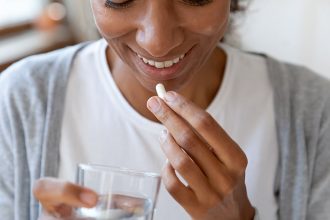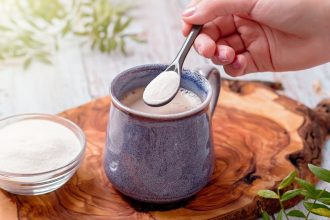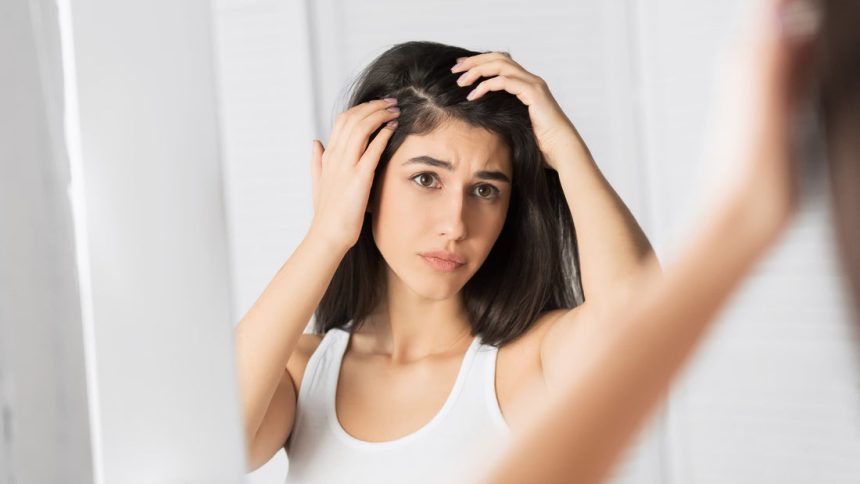Ever experienced a persistent itch on your scalp that seems to linger indefinitely? It appears at inconvenient times, disrupts your focus, and refuses to fade away easily. Dealing with this incessant itch can make even the simplest tasks feel challenging and detract from your overall well-being.
Beyond the discomfort of the itch itself, uncovering its root cause adds another layer of frustration. Could it be triggered by a trendy shampoo you recently tried? Is stress manifesting physically as an itchy scalp? Or perhaps it’s indicative of underlying conditions like dry scalp or dermatitis?
Pinpointing the reason behind your scalp’s itchiness is crucial for finding relief. In the following discussion, we delve into the common factors contributing to scalp itchiness and explore the potential benefits of scalp lotions as a viable solution. Let’s address this issue head-on—pun intended.
Q: Despite trying everything, my scalp remains persistently itchy. What could be causing this itching sensation on my scalp?
A: According to Deanne Mraz Robinson MD, FAAD, a board-certified dermatologist and president of Modern Dermatology, an itchy scalp can stem from various causes. Among the most common culprits are dandruff and seborrheic dermatitis. Although these conditions may seem similar, they exhibit distinct characteristics. “Dandruff results from dry skin on the scalp, leading to itchiness and flaking. Seborrheic dermatitis can mimic dandruff but also involves visible inflammation, itching, and erythema (a type of skin rash).”
Dr. Robinson also highlights psoriasis as a more complex condition for those dealing with persistent scalp itchiness. Psoriasis occurs when the immune system prompts the skin to produce excess skin cells, resulting in itchy and painful plaques.
Additionally, specific products can trigger scalp itchiness, even if not used regularly. “Scalp eczema (contact dermatitis) is associated with particular topical irritants that come into contact with the scalp’s skin.” Common irritants include fragrance, alcohol, and chemicals found in hair dyes. Therefore, while you may love your new fragrant hair product or recent dye job, your scalp might not share the same enthusiasm.
How Scalp Lotion May Help
Dr. Robinson advises being mindful of the ingredients when considering a scalp lotion to alleviate itchiness. Key ingredients like humectants such as squalane for hydration, aloe and botanicals for soothing effects, and ceramides and peptides to support overall scalp skin and hair health are beneficial.
On the other hand, it’s crucial to steer clear of fragrances, as they are a common source of scalp irritation. For individuals sensitive to fragrance or experiencing scalp sensitivity, Dr. Robinson suggests opting for a lightweight serum containing scalp-friendly ingredients like SEEN’s Restore Scalp Serum, which happens to be her personal favorite.
Moreover, the frequency of using scalp lotion may vary depending on the cause of the itch, notes Dr. Robinson. For instance, if you typically experience scalp itchiness during winter when the air is drier, you may need to apply scalp lotion more frequently compared to summer when your skin naturally produces more oil for self-nourishment.
How Lifestyle and Environment Impact Your Scalp
Dr. Robinson emphasizes that lifestyle choices and environmental factors significantly impact scalp health, particularly in relation to itchiness. For individuals dealing with seborrheic dermatitis, she suggests considering the elimination of yeast and mold from the diet, as they might exacerbate the presence of Malassezia fungi on the scalp. This involves avoiding yeast or fungi-containing foods such as bread, cheese, wine, beer, and others.
Furthermore, Dr. Robinson recommends managing stress levels and regulating shower temperature to reduce scalp inflammation. It’s essential to address specific issues like dandruff, psoriasis, and eczema as well.
Seeking guidance from a healthcare provider is crucial to understand the unique causes of these conditions and devise an appropriate treatment plan. Additionally, making informed choices about scalp lotions and adjusting diet and lifestyle can significantly contribute to scalp relief. By following these recommendations, individuals can effectively alleviate scalp discomfort and promote better scalp health.










